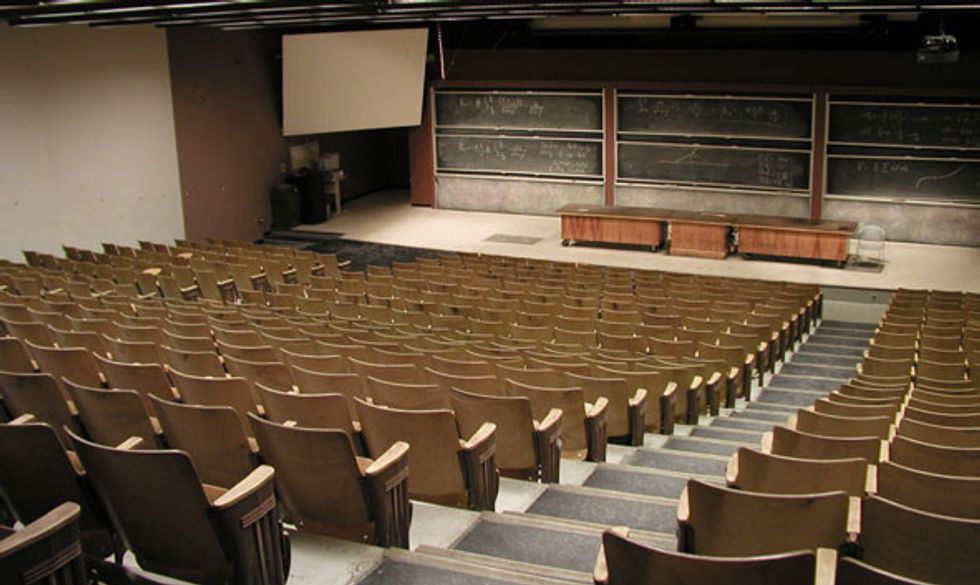It is nearly impossible to tell from Dr. Eric Welch's clear passion for the fields of history and archeology that much of his life's work was the result of a last-minute change in scheduling.
Welch earned his Masters in Biblical Languages at the Gordon-Conwell Theological Seminary, right outside of Boston, MA. Due to a sort of exchange program of universities in the area, he had the chance to take classes at Harvard, with no payment necessary. "The only reason I got in was because the class I wanted to take at my school was full, and my advisor told me to take some archaeology class at Harvard." Welch shrugged as he says that his advisor told him, "Everyone seems to like it."
It could be called a happy accident, or for the faith-inclined, fate. "I got hooked so hard the first day," he states. The professor just handed them three-thousand-year-old pottery, and all Welch could think was "This is like time travel."
Dr. Eric Welch grew up in Manhattan, Kansas, which he jokingly but fondly says is called "The Little Apple." Tucked away in the midwest, and attending a small bible college for his undergraduate degree, Dr. Welch's beginnings as an educator are humble enough. His interest in the history and teachings of the Bible, however, led him to further his education at Gordon-Conwell Theological Seminary, and then to Penn State for his PhD. In his career beyond his degrees, Welch traveled the surrounding areas near the Fertile Crescent of Ancient Mesopotamia, then taught students about history and the importance of it. He led trips in Israel with college students, who reveled at the history they could touch with their bare hands.
For all the interest of his students in the history and artifacts, the funding for such departments and studies at universities other than the Ivy Leagues is another story altogether. "How do you argue for the relevance of the ancient near-east," he asks. "It's not like we're curing cancer, or solving an energy crisis.. So how do you even justify faculty positions in the university for people who want to teach about Ancient Israel." For a while, with the conflicts in the middle east, history became modern, and old patterns were investigated as possible solutions to current problems. "All of these departments right now need people who do modern middle-east… Iraq, Iran," Welch says, but there is more to keeping history alive than political crises.
"We've got to get people excited enough about this that at least one person out of every thousand that I talk to is interested enough that they pursue it, and push for the field to still exist 30 years from now." Dr. Welch is a believer in the power of the students, for therein lies the future. "It's not easy though."
While Welch's first love- archaeology, specifically that related to ancient Israel, may have brought him knowledge about the world, experience on digs in Israel, and discoveries of artifacts thousands of years old, his true passion was found in the classroom, among 18 and 19 year old students learning about places oceans away and time periods in the past.
As he sits behind his desk, Dr. Welch is surrounded by books on ancient Israel and handwritten notes from former students, a somewhat juxtaposing array of office decorations. It may seem strange that college students have gifted Welch with papers covered in drawings, with sorority symbols and letters of appreciation. However, these notes are testaments to Welch's beloved status as a professor- and a friend- to students at the University of Kentucky.
His office is located in the Honors College building, down a hallway with all the doors open, inviting students in- to ask questions about their work- or just to say hello. "It is all about relationships," Welch says. "Even if it is just people walking by- I've waved at 2 or 3 people just in the last 5 minutes… Because those are 101 people." The right wall of his office is made up entirely of windows, with students walking by on their way to class. He's right- since I've sat down to interview him, multiple students have waved at him through the glass.
When asked about his greatest life passion, he says that "at one point" it was archeology, but now, "Being at a university is the greatest privilege in the world… It is one of the most powerful agencies we have to actually make society better."
"When I close my eyes at night, I'm not thinking 'Oh, I got to dig up Goliath's skull or got to be on the cover of National Geographic'... I'm thinking 'How is all of this getting me closer to the goal of being able to provide the best education for as many people as possible.'"


















